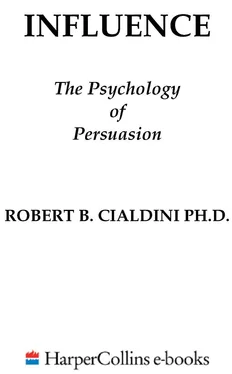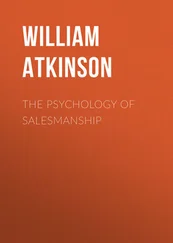Although highly effective as a technique for gaining attention, this form of fund-raising did not work especially well. The average American considered the Krishnas weird, to say the least, and was reluctant to provide money to support them. It quickly became clear to the Society that it had a considerable public-relations problem. The people being asked for contributions did not like the way the members looked, dressed, or acted. Had the Society been an ordinary commercial organization, the solution would have been simple—change the things the public does not like. But the Krishnas are a religious organization; and the way members look, dress, and act is partially tied to religious factors. Because, in any denomination, religious factors are typically resistant to change because of worldly considerations, the Krishna leadership was faced with a real dilemma. On the one hand were beliefs, modes of dress, and hairstyles that had religious significance. On the other hand, threatening the organization's financial welfare, were the less-than-positive feelings of the American public toward these things. What's a sect to do?
The Krishnas' resolution was brilliant. They switched to a fund-raising tactic that made it unnecessary for target persons to have positive feelings toward the fund-raisers. They began to employ a donation-request procedure that engaged the rule for reciprocation, which, as demonstrated by the Regan study, is strong enough to overcome the factor of dislike for the requester. The new strategy still involves the solicitation of contributions in public places with much pedestrian traffic (airports are a favorite), but now, before a donation is requested, the target person is given a "gift"—a book (usually the Bhagavad Gita), the Back to Godhead magazine of the Society, or, in the most cost-effective version, a flower. The unsuspecting passerby who suddenly finds a flower pressed into his hands or pinned to his jacket is under no circumstances allowed to give it back, even if he asserts that he does not want it. "No, it is our gift to you," says the solicitor, refusing to accept it. Only after the Krishna member has thus brought the force of the reciprocation rule to bear on the situation is the target asked to provide a contribution to the Society. This benefactor-before-beggar strategy has been wildly successful for the Hare Krishna Society, producing large-scale economic gains and funding the ownership of temples, businesses, houses, and property in 321 centers in the United States and overseas.
As an aside, it is instructive that the reciprocation rule has begun to outlive its usefulness for the Krishnas, not because the rule itself is any less potent societally, but because we have found ways to prevent the Krishnas from using it on us. After once falling victim to their tactic, many travelers are now alert to the presence of robed Krishna Society solicitors in airports and train stations, adjusting their paths to avoid an encounter and preparing beforehand to ward off a solicitor's "gift." Although the Society has tried to counter this increased vigilance by instructing members to be dressed and groomed in modern styles to avoid immediate recognition when soliciting (some actually carry flight bags or suitcases), even disguise has not worked especially well for the Krishnas. Too many individuals now know better than to accept unrequested offerings in public places like airports. Furthermore, airport administrators have initiated a number of procedures designed to forewarn us of the Krishnas' true identity and intent. Thus, it is now common airport practice to restrict the Krishnas' soliciting activity to certain areas of the airport and to announce through signs and the public address system that the Krishnas are soliciting there. It is a testament to the societal value of reciprocation that we have chosen to fight the Krishnas mostly by seeking to avoid rather than to withstand the force of their gift giving. The reciprocity rule that empowers their tactic is too strong—and socially beneficial—for us to want to violate it.
Politics is another arena in which the power of the reciprocity rule shows itself. Reciprocation tactics appear at every level:
At the top, elected officials engage in "logrolling" and the exchange of favors that makes politics the place of strange bedfellows, indeed. The out-of-character vote of one of our elected representatives on a bill or measure can often be understood as a favor returned to the bill's sponsor. Political analysts were amazed at Lyndon Johnson's ability to get so many of his programs through Congress during his early administration. Even members of congress who were thought to be strongly opposed to the proposals were voting for them. Close examination by political scientists has found the cause to be not so much Johnson's political savvy as the large score of favors he had been able to provide to other legislators during his many years of power in the House and Senate. As President, he was able to produce a truly remarkable amount of legislation in a short time by calling in those favors. It is interesting that this same process may account for the problems Jimmy Carter had in getting his programs through Congress during his early administration, despite heavy Democratic majorities in both House and Senate. Carter came to the presidency from outside the Capitol Hill establishment. He campaigned on his outside-Washington identity, saying that he was indebted to no one there. Much of his legislative difficulty upon arriving may be traced to the fact that no one there was indebted to him.
At another level, we can see the recognized strength of the reciprocity rule in the desire of corporations and individuals to provide judicial and legislative officials with gifts and favors, and in the series of legal restrictions against such gifts and favors. Even with legitimate political contributions, the stockpiling of obligations often underlies the stated purpose of supporting a favorite candidate. One look at the lists of companies and organizations that contribute to the campaigns of both major candidates in important elections gives evidence of such motives. A skeptic, requiring direct evidence of the quid pro quo expected by political contributors, might look to the remarkably bald-faced admission by Charles H. Keating, Jr., who was later convicted on multiple counts of fraud in this country's savings and loan disaster. Addressing the question of whether a connection existed between the $1.3 million he had contributed to the campaigns of five U.S. senators and their subsequent actions in his behalf against federal regulators, he asserted, "I want to say in the most forceful way I can: I certainly hope so."
At the grass-roots level, local political organizations have learned that the principal way to keep their candidates in office is to make sure they provide a wide range of little favors to the voters. The "ward heelers" of many cities still operate effectively in this fashion. But ordinary citizens are not alone in trading political support for small personal favors. During the 1992 presidential primary campaign, actress Sally Kellerman was asked why she was lending her name and efforts to the candidacy of Democratic hopeful Jerry Brown. Her reply: "Twenty years ago, I asked ten friends to help me move. He was the only one who showed up."
Of course, the power of reciprocity can be found in the merchandising field as well. Although the number of possible examples is large, let's examine a pair of familiar ones deriving from the "free sample." As a marketing technique, the free sample has a long and effective history. In most instances, a small amount of the relevant product is provided to potential customers for the stated purpose of allowing them to try it to see if they like it. And certainly this is a legitimate desire of the manufacturer—to expose the public to the qualities of the product. The beauty of the free sample, however, is that it is also a gift and, as such, can engage the reciprocity rule. In true jujitsu fashion, the promoter who gives free samples can release the natural indebting force inherent in a gift while innocently appearing to have only the intention to inform. A favorite place for free samples is the supermarket, where customers are frequently provided with small cubes of a certain variety of cheese or meat to try. Many people find it difficult to accept a sample from the always-smiling attendant, return only the toothpick, and walk away. Instead, they buy some of the product, even if they might not have liked it especially well. A highly effective variation on this marketing procedure is illustrated in the case, cited by Vance Packard in The Hidden Persuaders, of the Indiana supermarket operator who sold an astounding one thousand pounds of cheese in a few hours one day by putting out the cheese and inviting customers to cut off slivers for themselves as free samples.
Читать дальше












